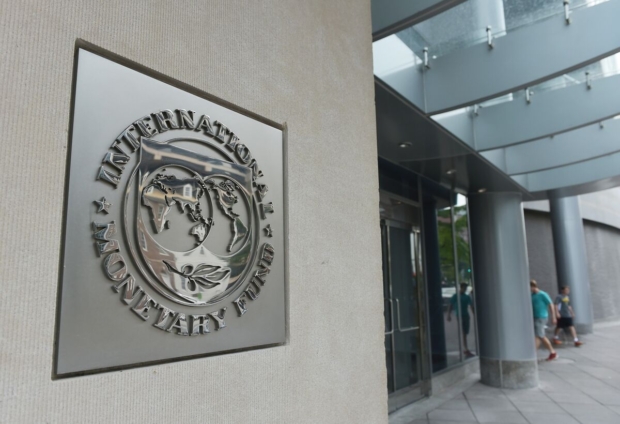The International Monetary Fund said that Ghana will need a debt relief agreement from its official creditors to qualify for further disbursements under a $3 billion extended credit facility program.
The Washington-based lender reached a staff-level deal with Ghana on the first review of the program that started in May, Stéphane Roudet, IMF mission chief, said in a statement on Friday.
Ghana’s dollar bonds rose and were among the best performers in emerging markets. Notes maturing in 2049 gained 0.2 cents to 41.07 cents on the dollar by 2:14 p.m. in London.
To complete the review, which will give the West African nation access to another $600 million disbursement, bilateral creditors must agree on specific terms of debt treatment, in line with the financing assurances they provided five months ago, he said.
The financing assurance enabled IMF to approve Ghana’s program, with an initial $600 million disbursement.
“We’re now in the first review so we’re moving from a general commitment to a specific credit commitment on terms of debt restructuring,” Roudet said at a press conference in the capital, Accra. "This will also inform the specific terms for external commercial creditors," he added.
The lender is treating Ghana like Zambia, which also has an IMF program.
Earlier this year, the IMF insisted that Zambia’s official creditor committee sign a memorandum of understanding to unlock the next disbursement, but later backed down and approved the payment after the bilateral lenders in June announced an agreement in principle to restructure $6.3 billion of debt.
“We are confident that the official creditor committee agreement will come through in time for the executive board’s approval in November,” Minister of Finance, Ken Ofori-Atta said in an interview, on the sidelines of the press conference.
Ghana’s policy reform commitment under the program is bearing fruit, Roudet said. Economic growth has proven more resilient than earlier thought, fiscal and external positions have improved, the exchange rate has stabilized and the inflation rate has declined, he said.
Ghana’s inflation slowed to 40.1% in August, its lowest level in 10 months. The cedi, which weakened as much as 21% earlier this year has pared its losses against the dollar to 13%.
The country is restructuring almost all of its $50 billion debt to make it sustainable under the IMF program. It has successfully completed its domestic debt rework. The next step is to revamp about $13 billion in Eurobonds.
Ghana sought IMF help in July 2022 after its dollar bonds plunged and spending cuts failed to convince investors it would be able to repay debt.
Latest Stories
-
WAPCo to commence major pipeline maintenance and inspection from November 25
4 mins -
Power crisis: Amandi is off due to maintenance, not debt – ECG Boss
31 mins -
Votes cast for late Akua Donkor to be declared invalid – Electoral Commission
46 mins -
You can’t keep “incompetent” Otto Addo for the long term – Countryman Songo
56 mins -
Joy FM holds 2024 Prayer Summit for Peace
1 hour -
Lady sues Police and AG over assault in custody
2 hours -
Ghana’s railway sector has been revived under my leadership – Akufo-Addo
3 hours -
Next government must enforce C190 – Women Economic Dialogue Forum
3 hours -
NCCE engages party youth activists at Nandom on peaceful election
3 hours -
SSNIT engages stakeholders on its operations
3 hours -
Defilement: 19-year-old farmer jailed ten years, with hard labour
3 hours -
Bawumia to inaugurate new headquarters of Lands Commission on November 25
3 hours -
Sylvester Tetteh denies demolishing GBC staff bungalow
3 hours -
Signing of peace pact by presidential candidates slated for November 28
3 hours -
Akufo-Addo reiterates commitment to free and fair elections
3 hours

